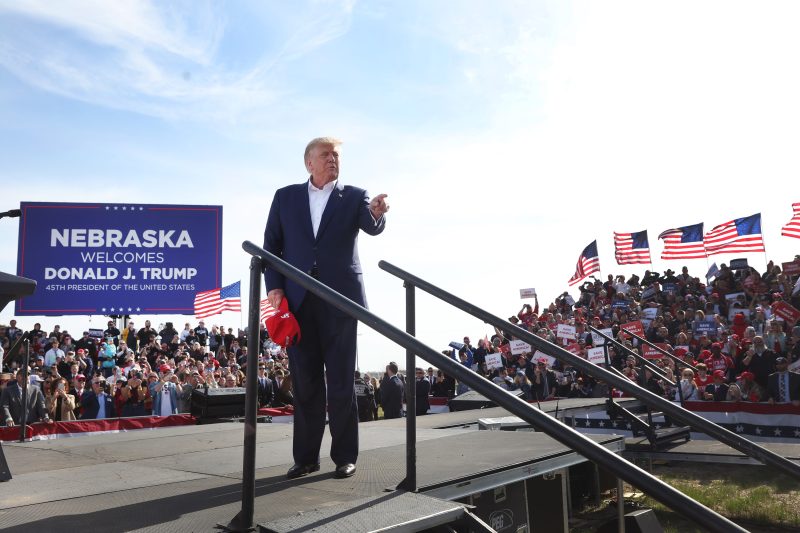In recent news, former President Donald Trump has escalated his efforts to push for a change in the electoral vote allocation system in Nebraska. This move has sparked debates and discussions among political analysts, lawmakers, and the public at large.
Nebraska is one of two states, along with Maine, that does not follow the winner-takes-all system for distributing electoral votes in presidential elections. Instead, the state allocates its electoral votes based on the winner of each congressional district, with the remaining two votes going to the overall state winner.
Trump’s push for Nebraska to switch to a winner-takes-all system comes as a response to his narrow loss in the state in the 2020 election. While Trump won the overall popular vote in Nebraska, he lost one of the congressional districts to President Joe Biden, resulting in Biden securing one electoral vote.
Proponents of the winner-takes-all system argue that it provides a more straightforward and decisive outcome, reflecting the overall will of the state’s voters. They claim that the current system can lead to a situation where the winner of the popular vote does not receive the majority of the state’s electoral votes, potentially undermining the democratic process.
On the other hand, opponents of changing the electoral vote allocation system in Nebraska raise concerns about disenfranchising voters in districts that may lean towards the minority party. They argue that the current system allows for a more nuanced representation of the state’s political diversity and ensures that all voices are heard in the electoral process.
The debate over changing Nebraska’s electoral vote allocation system is not a new one and has been the subject of previous legislative efforts. However, Trump’s vocal advocacy for the switch has injected new energy into the discussion, drawing attention to the potential implications of such a change on future presidential elections.
As the debate continues to unfold, it remains to be seen whether Nebraska will ultimately change its electoral vote allocation system. The outcome of this discussion could have far-reaching consequences for the state’s role in future presidential elections and may shape the broader debate on electoral reform in the United States.

